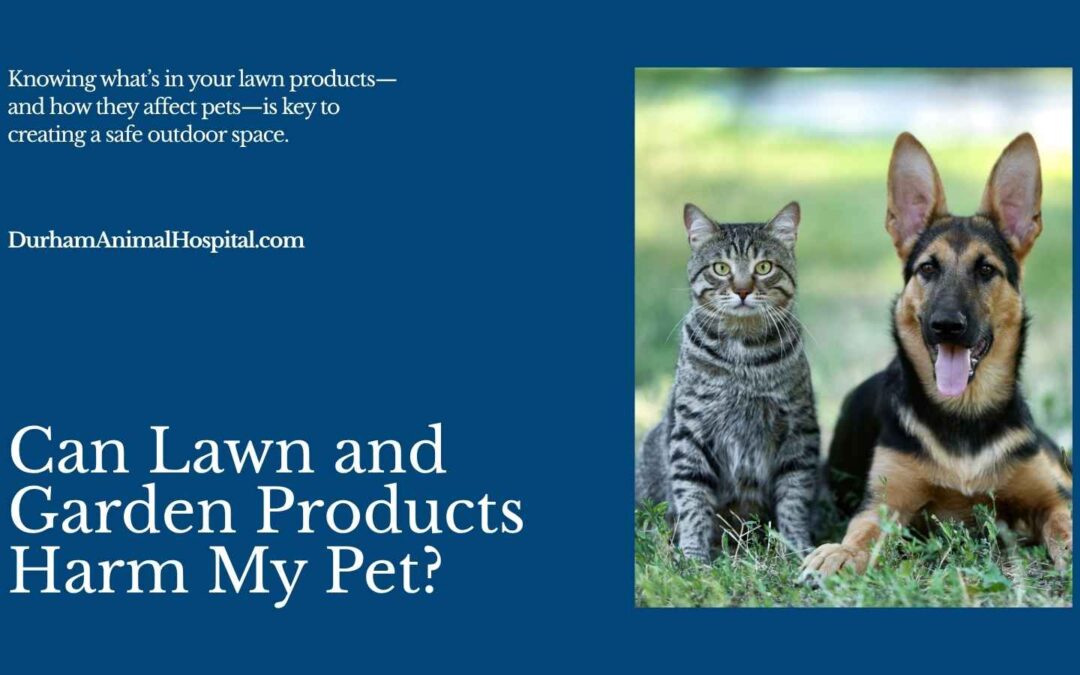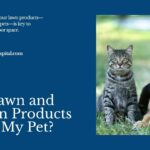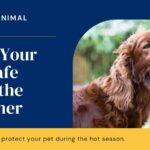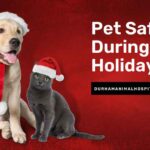Can Lawn and Garden Products Harm My Pet? – A vibrant green lawn and a blooming garden are hallmarks of spring and summer. But as pet parents, it’s important to ask: Are those lawn care products safe for your furry friends?
Can Lawn and Garden Products Harm My Pet?
While many modern lawn and garden treatments are safer than products used decades ago, they can still pose serious risks to pets. Dogs and cats are naturally curious—rolling in the grass, sniffing the soil, and occasionally munching on plants. This close contact means they’re more likely to inhale fumes or pick up chemical residues on their paws, fur, and skin.
Knowing what’s in your lawn products—and how they affect pets—is key to creating a safe outdoor space.
Fertilizer, Insecticide, and Mulch: What to Watch For
- Fertilizers: Most contain nitrogen, phosphorus, and potassium, essential for plant growth but potentially toxic in large quantities for pets. Additives like iron, copper, and zinc can also lead to poisoning. Ingestion can cause anything from mild digestive upset to severe symptoms like vomiting, lethargy, or even collapse.
- Meal-Based Fertilizers: These organic fertilizers often contain bone, blood, or feather meal. Their scent can be irresistible to dogs, but if eaten, they can harden into a mass in the stomach, causing blockages, intense pain, or pancreatitis.
- Pesticides & Herbicides: Products containing organophosphates or carbamates are highly toxic to pets, even in small doses. Symptoms may include difficulty breathing, drooling, tremors, and seizures. Although these are less common due to updated EPA regulations, they’re still in circulation, particularly in older products or imported brands.
- Slug and Snail Baits (Metaldehyde): Extremely dangerous to dogs and cats, metaldehyde can cause life-threatening symptoms such as tremors, seizures, or death, even with a small amount.
- Mulch: While generally safe if not ingested, standard mulch can pose a choking hazard or cause GI blockages if swallowed.
- Cocoa Mulch: Popular for its rich color and aroma, cocoa bean mulch contains theobromine and caffeine—the same compounds that make chocolate dangerous to pets. Ingestion can result in a rapid heart rate, muscle tremors, or even death.
Tips to Keep Your Pet Safe
- Read Labels: Always check packaging for pet safety warnings and avoid products labeled “toxic” or “harmful to animals.”
- Limit Access: Keep pets off treated lawns or gardens until chemicals are fully absorbed and the area is dry, usually 24–72 hours, depending on the product.
- Rinse and Wipe: After outdoor playtime, rinse or wipe down your pet’s paws and underbelly to remove any residual chemicals.
- Store Products Securely: Keep lawn and garden products sealed and stored out of reach, just as you would with household cleaners.
Know When to Call the Vet
If you notice your pet licking treated surfaces, showing unusual behavior, or exhibiting symptoms like vomiting, unsteadiness, or tremors, don’t wait. Contact your veterinarian or a 24/7 animal poison control center immediately.
Durham Animal Hospital and North Churton Animal Hospital are here for you. You can contact us through our website, but if your pet is in need of emergency care, call:
- Durham: (919) 620-7387
- Hillsborough: (919) 644-7387
Dr. James Miller and our experienced team are ready to help protect the health and happiness of your pet through every season.
Find us on Facebook:






